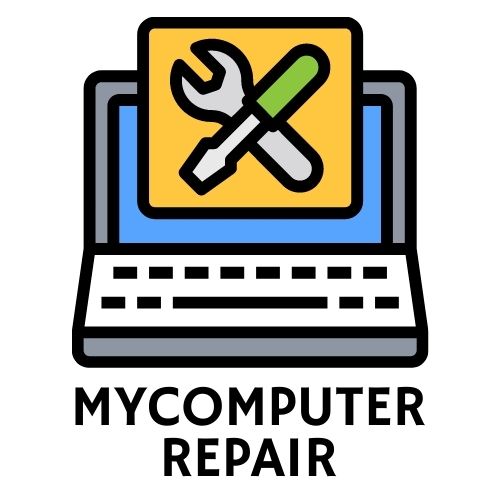Why is my computer running so slowly? That’s one of the most asked questions from almost all computer users. Having a sluggish computer can make even the simplest work a struggle. When you start to experience a slow computer, do not fret because you can fix this problem.
Many reasons can cause sluggish computer performance. And identifying the causes will help bring your computer back to its best performance. You will be able to give the needed measures to fix whatever is causing your computer to slow down. For computer repair Malaysia and RAM upgrade, bring your computer to MyComputer Repair.
If you do not know what causes a slow computer, coming up with the right action to fix it can be difficult. So, here are the reasons why your computer is running so slowly:
CPU Bottleneck
This happens when your CPU cannot carry all the tasks that it needs to perform. Usually, a bottlenecked CPU occurs when you pair up high-end hardware, like GPU, to a low-end CPU. What happens is that the low-end CPU will not be able to catch up with the speed on the GPU. Thus, it causes your computer to slow down. Some software for video editing, games, and 3D modeling can cause bottlenecks as well.
Before fixing the CPU bottleneck, identifying the main cause would help. However, looking for the cause is not that easy. The best way to fix the problem is to replace your low-end CPU with the latest version. You can also downgrade software or devices on your computer. If a certain program causes your computer to slow down, it would be better to have them uninstalled.
Old Hard Disk Drive
The first warning sign to know that your hard disk is old is when your computer starts to run slow. Though there are hard drives that last a long time, most of them last for about three to five years. Aside from sluggish performance, there are more signs that show your hard disk is old. You may hear an occurrence of weird sounds when your computer starts lagging. System freezes may occur too often as well. The best way to fix this is to buy a new hard disk drive.
Storage Space is Full
Your computer begins to slow down when the storage space is getting full. If you are still using a hard disk drive, instead of an SSD, your computer storage may get full easily. To prevent getting full storage often, remove unnecessary and temporary files. Also, get rid of applications that you do not need anymore. After removing unneeded files and programs, your computer should have better performance. But if it is still sluggish, it would be better if you upgrade your hard disk drive. You can also change your hard disk drive to an SSD to get the best performance from your computer.
Lack of RAM
Your computer runs tasks by relying on the RAM. As your computer runs tasks, it takes up space in the RAM. Most computer software nowadays has a 64-bit system requirement. To get the best software and RAM compatibility, you need at least 4 to 8 GB of RAM. So, if you do not have enough space, your computer will slow down. You can solve this problem by upgrading your RAM.
Too Many Unnecessary Background Programs
Sometimes, while we are performing tasks on our computers, other programs run in the background. You may not notice some of them, but they are causing sluggishness in your computer’s performance. Most that run in the background are antivirus programs.
If you are using Microsoft, you can see programs that are running on your computer. Follow the steps below:
- Hold Ctrl + Alt + Delete
- Choose Start Task Manager
- Then, click the Process tab
You will then see applications that run in the background. You can choose to close them or set a scheduled run time. By doing this, programs will not swamp your CPU at the same time.
Malware or Viruses
Viruses and malware cause a lot of problems on your computer. Slowed performance is one of the effects of viruses and malware. You can protect your computer from these by using antivirus programs. After running an antivirus, your computer’s performance should go back to normal. If you suspect malware is the cause of your slowing computer, use malware protection programs. However, there are times when virus and malware residue remains in the computer. This can still cause some issues, so you may need the help of a professional.
Outdated Software or Unnecessary Software Updates
When you buy a computer, some programs are pre-installed on it. Some of them run updates automatically. Every time you update software, they take up some space on your computer storage. They may alter the optimum performance of your computer.
From time to time, new software updates are released to improve user usage. If you fail to update your software, you won’t get the latest features. If your operating system is outdated, you may not be able to experience fluid system performance.
Too Many Programs on Startup
Every time you turn on your computer, some programs run automatically. Some of them run in the background as well. When your computer is bombarded with too many programs on startup, it can affect the processing speed. It would help if you disable the programs that you do not need to run on startup. By doing this, unnecessary programs will not hinder other programs that are more important.
When your computer starts to run slow, doing a restart would help as well. Restarting your computer will refresh the programs that are running. You may also close unused programs or unnecessary tabs. If your hard drive is corrupted or fragmented, you need to do some upgrades. Or better yet, replace your hard disk with an SSD. You may also want to update your computer’s operating system.
Conclusion
After knowing the reason for a slow computer and following the tips above, you should get your computer back to its optimum performance. But if nothing changes after the necessary measures, you need to consult with the experts. Experts from MyComputer Repair Malaysia are more than willing to serve you. You can visit our website at https://www.mycomputerrepair.com.my for inquiries about faulty computers, Mac, phones, and iPads.


Recent Comments